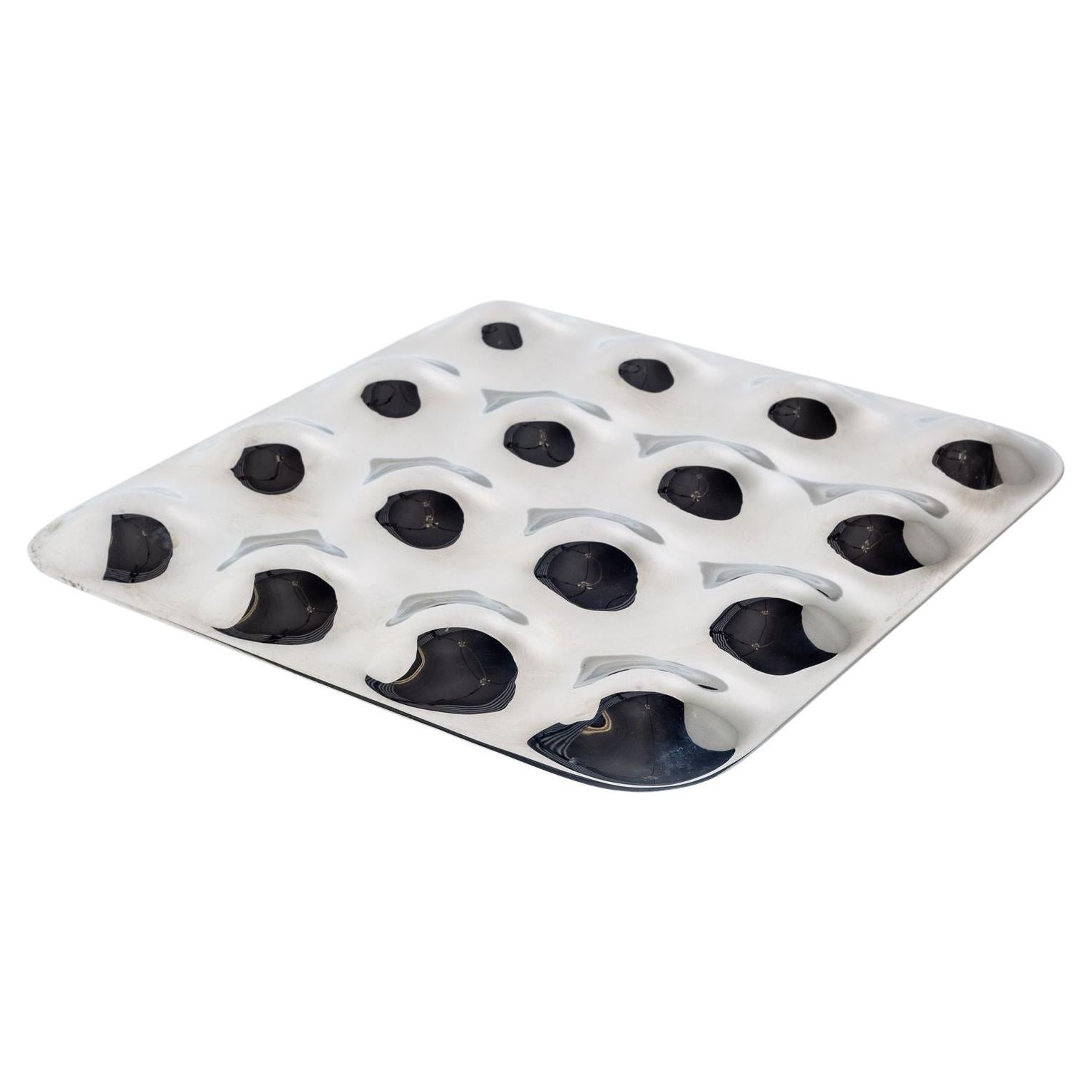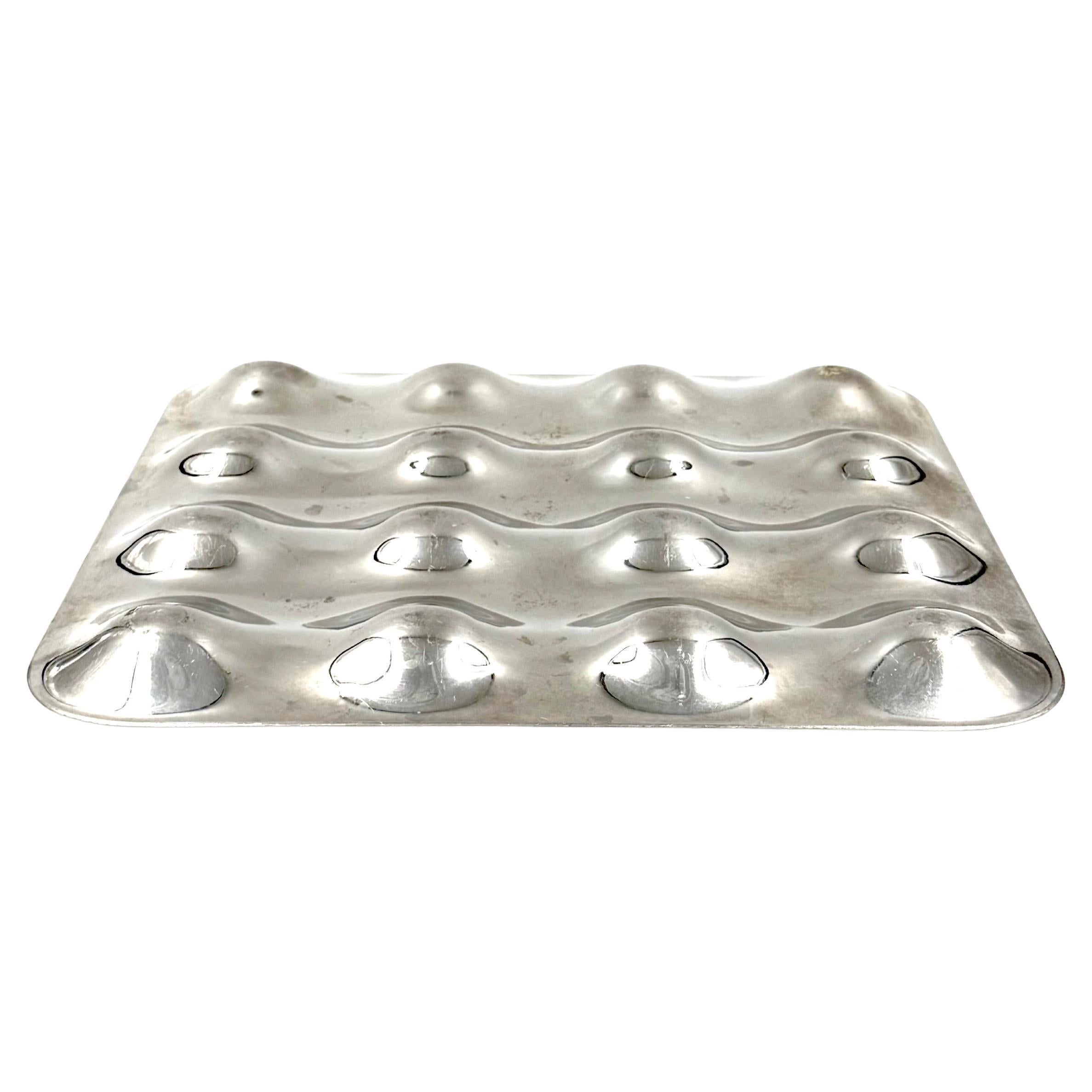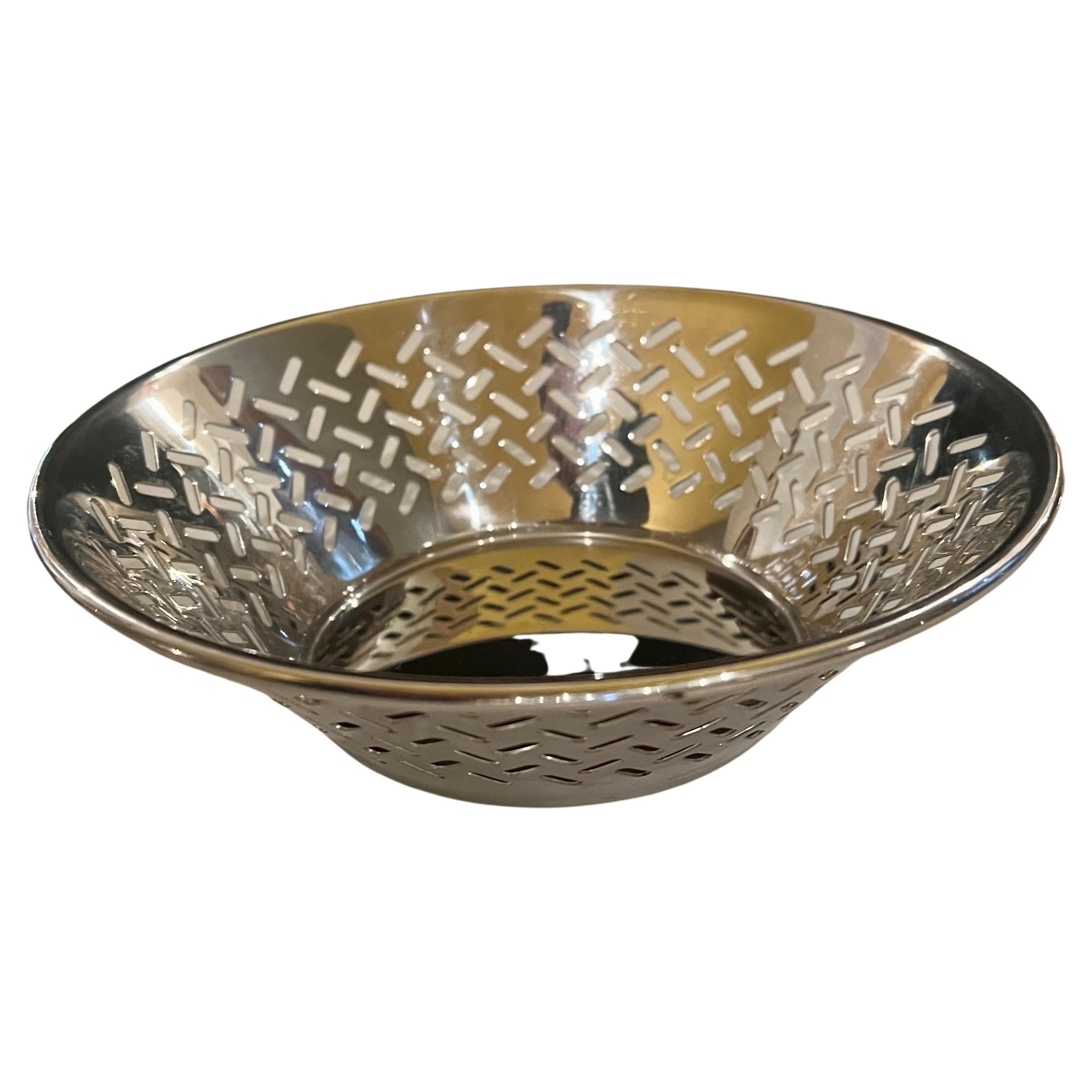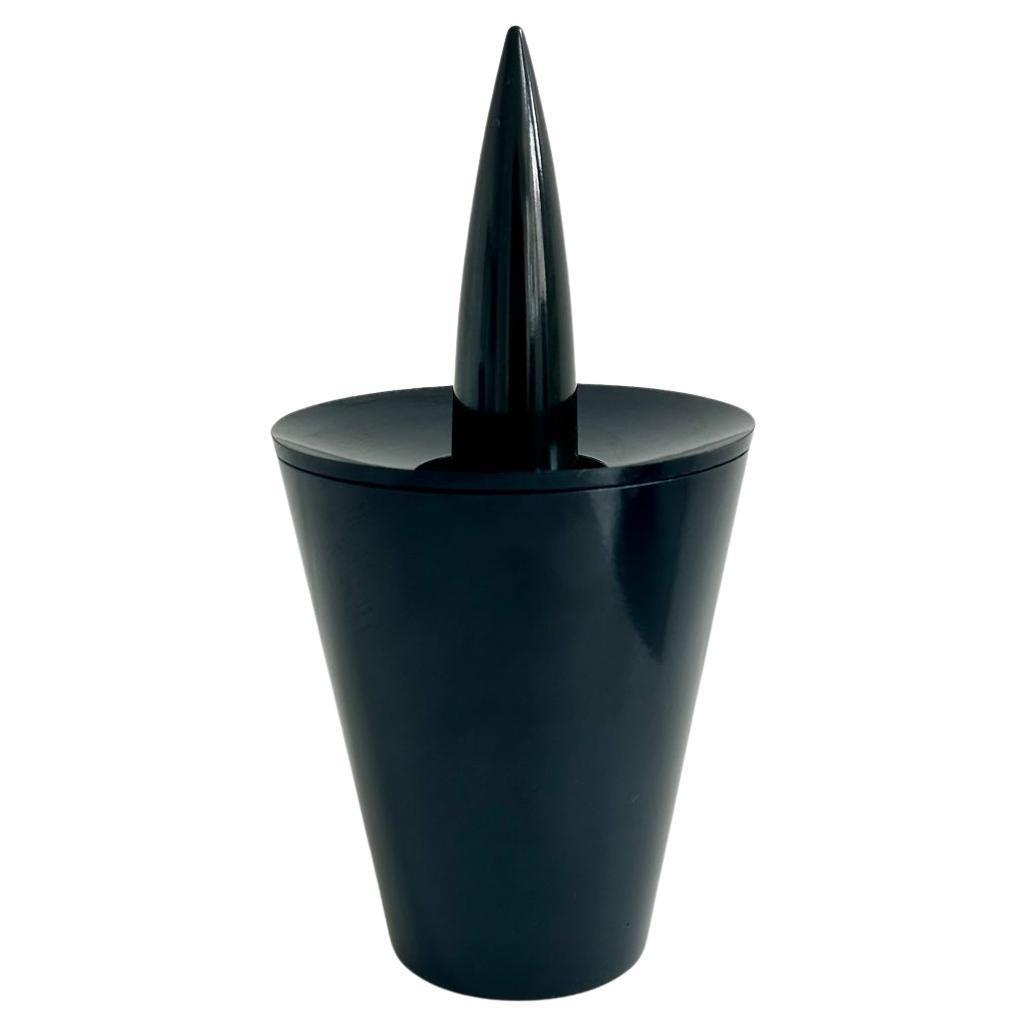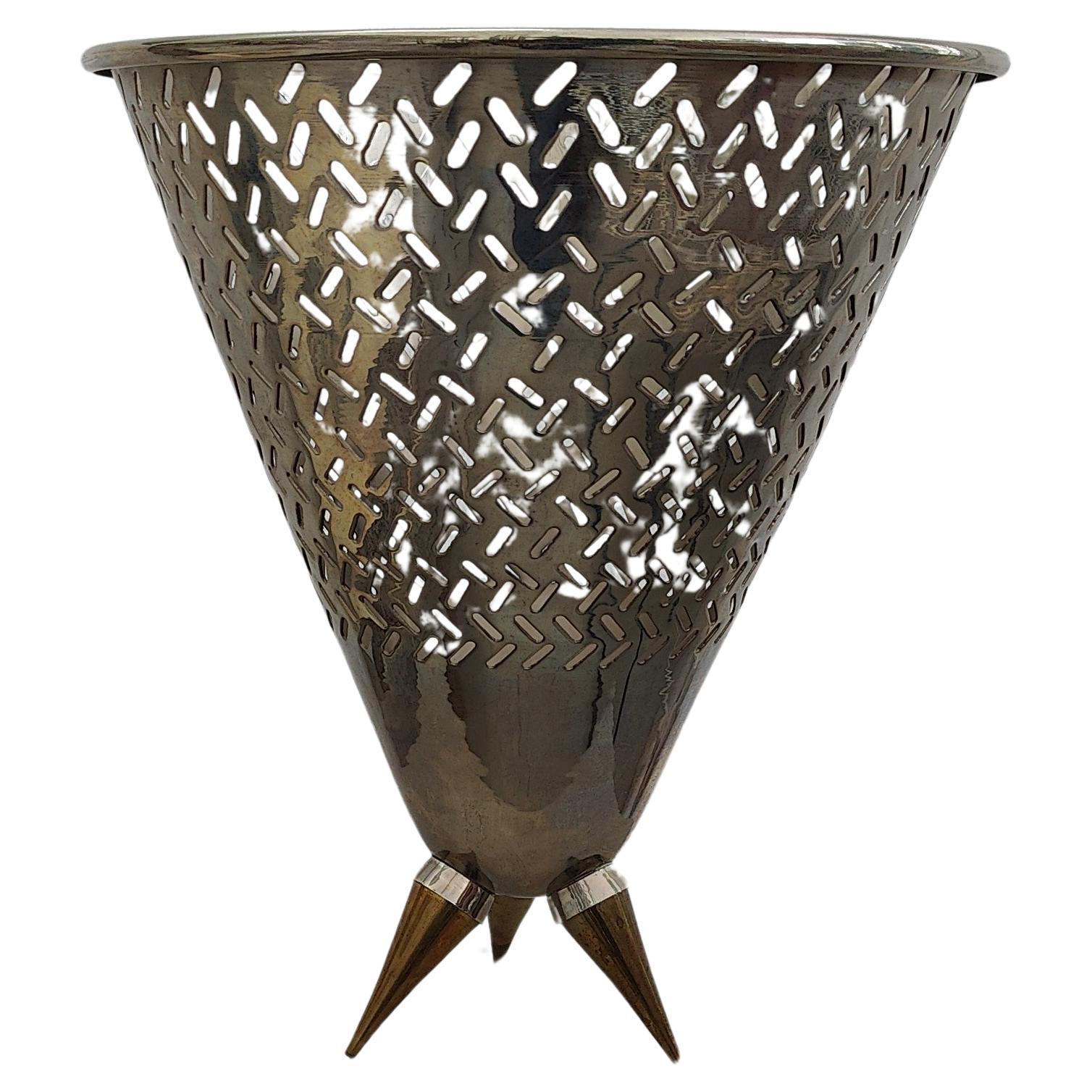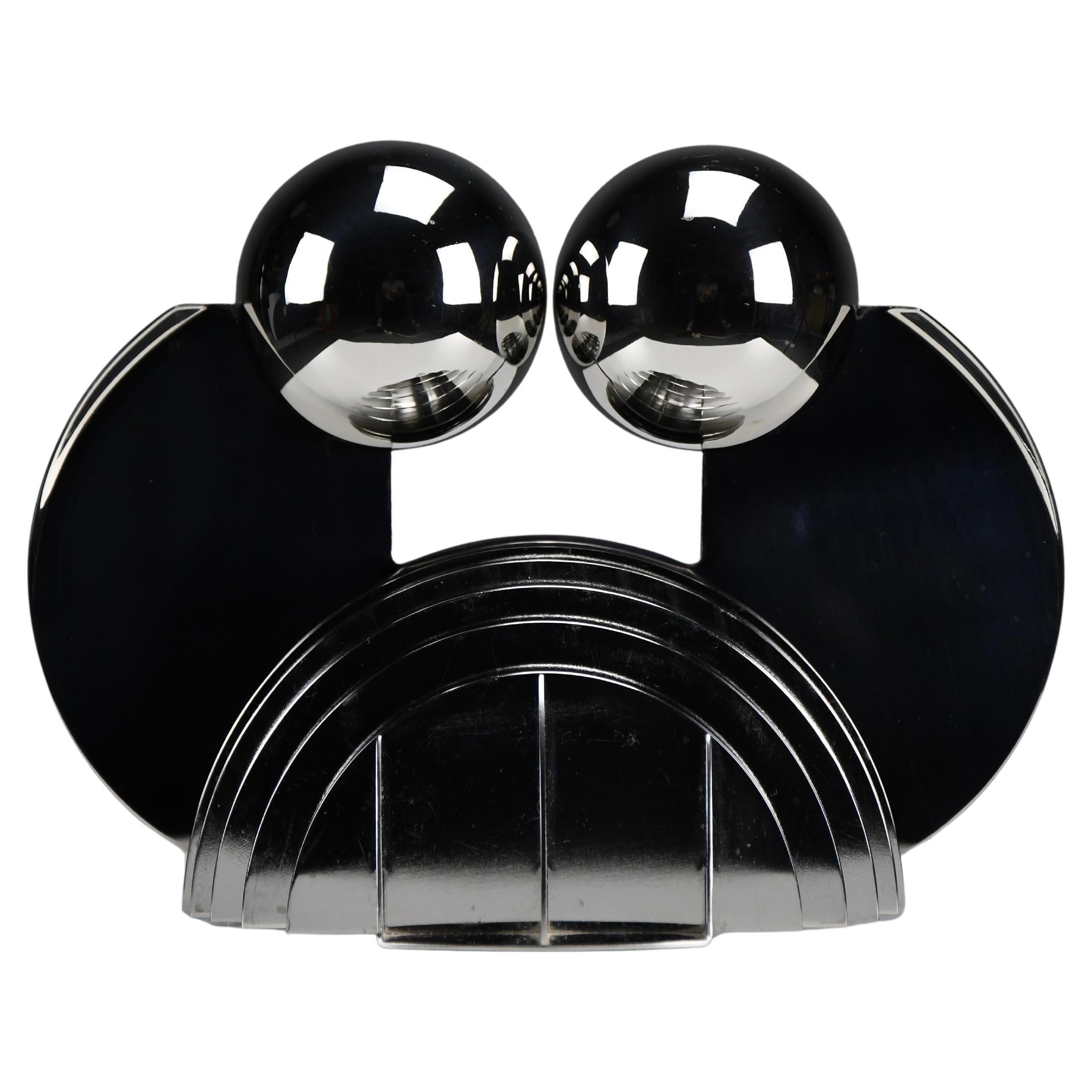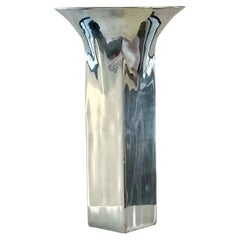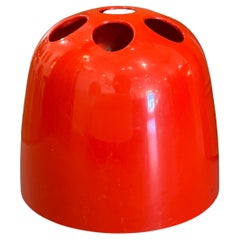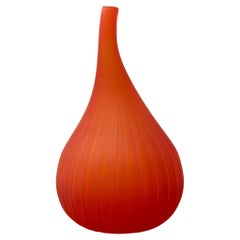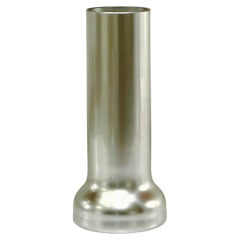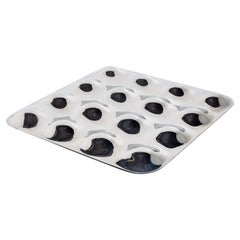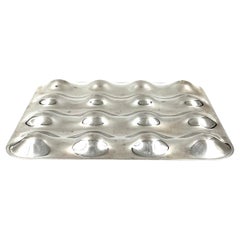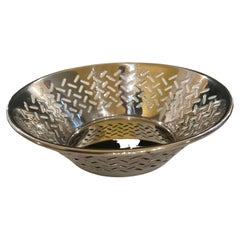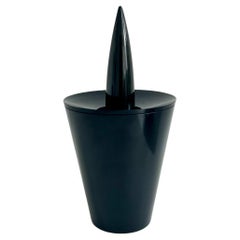Items Similar to "Fruit Mama" Fruit Holder design Stefano Giovannoni for Alessi, Italy 1993
Want more images or videos?
Request additional images or videos from the seller
1 of 12
"Fruit Mama" Fruit Holder design Stefano Giovannoni for Alessi, Italy 1993
$295
£223.84
€255.94
CA$412.04
A$458.13
CHF 239.21
MX$5,576.52
NOK 3,052.20
SEK 2,859.76
DKK 1,910.13
Shipping
Retrieving quote...The 1stDibs Promise:
Authenticity Guarantee,
Money-Back Guarantee,
24-Hour Cancellation
About the Item
Stefano Giovannoni for Alessi, Italy "Fruit Mama" Fruit Holder, designed in 1993
No longer in production, this is a fun, useful and sculptural fruit bowl that is certain to gain attention when placed in your kitchen or on your dining table. Featured in the movie "Deep Space Nine".
There are very slight/light scratches to stainless steel but overall a pristine example.
Stamped with Alessi logo on edge of stainless bowl/
Measures 10.44 inches high, 13.78 inches diameter.
Alessi company launched operation FFF, Family Follows Fiction. This series of projects was the result of a workshop where five different designers took part, and it was also the start of the use of plastic in a company that had historically been known for its use of a noble material like stainless steel. It was truly a revolution. A large battalion of small domestic utensils shaped like little men, small animals and a variety of creatures invaded shop· displays everywhere, bringing a fresh breeze of colour to the universe of design that was still too austere. It was a triumph of merchandise, the apotheosis of the consumer culture that Stefano had approached through his mind-opening reading of Baudrillard’s writing; it was the reification of a new wonderland for the happy and unrepentant consumer.
Stefano Giovannoni born in La Spezia, lives and works in Milan as industrial designer, interior designer and architect.He graduated at the University of Architecture in Florence at the age of 23 and, in the same faculty, he taught and conducted research until 1991.
In 1984 and 1985 he collaborated with Ettore Sottsass and Alchimia-Mendini. He taught at Domus Academy in Milan, SPD Milan, at Università del progetto di Reggio Emilia, at University of Architecture in Florence and in Genoa.
He collaborated with companies, such as Alessi, first designer with more than 300 steel and plastic products, (remark products: the “Girotondo family” absolute bestselling series in the history of design-oriented companies with more than 10 millions products sold, the “Mami” series, “Il Bagno Alessi” and famous plastic products such as Lilliput, Magic Bunny and Merdolino), Magis (with “Bombo”stool, the most worldwide copied design product, “Vanity” and “First” series), Amore Pacific, Artsana, Bertazzoni, Bisazza, Cederroth, Deborah, Elica, Fabbrica Pelletterie Milano, Fiat, Hannspree, Hanssem, Helit, Henkel, Honeywell, Inda, Kankio, KDDI, Kokuyo, Laufen, Lavazza, LG Hausys, LG Electronics, L’Oreal - Maletti, Meglio, Mikakuto, Moooi, Nestlé-Frisco (art director in1996), Nissan, NTT Docomo, Olivari, Oras, Oregon Scientific, Papernet-Sofidel, Promelit, Pulsar, Replay, Samsung, Seiko, Shaf, Siemens, Skitsch, Sodastream, SPC, Star, Telecom, Toto, 3M, Tubes, Veneta Cucine, Vondom, ZTE etc.
He works as industrial designer, designing many bestsellers and commercially successful products that awarded him as “Champion of Super and Popular of the years 2000” (Alberto Alessi), “King Mida of design” (Cristina Morozzi), “Most bankable designer” (Eugenio Perazza, Magis). - Source: Giovannoni Design
- Creator:Stefano Giovannoni (Designer),Alessi (Manufacturer)
- Dimensions:Height: 10.44 in (26.52 cm)Width: 13.78 in (35.01 cm)Depth: 13.78 in (35.01 cm)
- Style:Post-Modern (Of the Period)
- Materials and Techniques:
- Place of Origin:
- Period:1990-1999
- Date of Manufacture:Circa 1990s
- Condition:Wear consistent with age and use. Very slight/light scratches to stainless steel but overall a pristine example.
- Seller Location:Cathedral City, CA
- Reference Number:Seller: OC98571stDibs: LU8352245432742
About the Seller
5.0
Gold Seller
Premium sellers maintaining a 4.3+ rating and 24-hour response times
Established in 2000
1stDibs seller since 2023
21 sales on 1stDibs
Typical response time: <1 hour
- ShippingRetrieving quote...Shipping from: Cathedral City, CA
- Return Policy
Authenticity Guarantee
In the unlikely event there’s an issue with an item’s authenticity, contact us within 1 year for a full refund. DetailsMoney-Back Guarantee
If your item is not as described, is damaged in transit, or does not arrive, contact us within 7 days for a full refund. Details24-Hour Cancellation
You have a 24-hour grace period in which to reconsider your purchase, with no questions asked.Vetted Professional Sellers
Our world-class sellers must adhere to strict standards for service and quality, maintaining the integrity of our listings.Price-Match Guarantee
If you find that a seller listed the same item for a lower price elsewhere, we’ll match it.Trusted Global Delivery
Our best-in-class carrier network provides specialized shipping options worldwide, including custom delivery.More From This Seller
View AllMichael Lax Design Grainware METAAL Vase, circa 1992
By Michael Lax
Located in Cathedral City, CA
Measures 12-3/4” high, 7-1/2” wide at the mouth, 2-7/8” wide at the base.
Stamped on base
METAAL
Grainware c 1992
Michael Lax Design
ML-4012
There are some light scuffs and scratches especially toward the base, patina to finish. See images for detail.
Michael Lax (1929–1999) was an American industrial designer who created household products for companies such as Copco, Lightolier, Dansk, Salton, Metaal, Mikasa, Tupperware, and American Cyanamid. Several of his best-known products, including the Lytegem lamp by Lightolier and the Copco enamel...
Category
1990s American Post-Modern Vases
Materials
Aluminum
Emma Gismondi Schweinberger for Artemide Dedalo Plastic Umbrella Stand, ca 1966
By Artemide, Emma Gismondi Schweinberger
Located in Cathedral City, CA
Emma Gismondi Schweinberger for Artemide "Dedalo" Red ABS Plastic Umbrella Stand, ca 1966.
This is an iconic space age MOD item made in the mid-late 60s in Italy. A perfect Pop Art ...
Category
Vintage 1960s Italian Space Age Umbrella Stands
Materials
Plastic
Renzo Stellon for Salviati Orange Satin Finish "Drops" Vase 2003
By Salviati, Renzo Stellon
Located in Cathedral City, CA
Renzo Stellon for Salviati Orange Satin Finish "Drops" Vase 2003
This is a beautiful hand-blown reddish orange glass vase with a satin finish signed Salviati 2003 (first designed in...
Category
Early 2000s Italian Modern Vases
Materials
Blown Glass
Karim Rashid for Leonardo Germany Limited Edition New Move Glass Vase, ca 1999
By Karim Rashid
Located in Cathedral City, CA
Karim Rashid for Leonardo Germany Limited Edition New Move Silver Glass Vase, ca 1999.
Measures 8” high, base 3-1/2” wide, and mouth 2-1/4” wide.
There is a small scratch of silver finish/coating on glass (we've posted an image of the interior and exterior at the area of the scratch). There is also a faint area of small blemishes at the base See images for more detail.
If there’s one thing karim rashid hates, it’s trophies. The 40-year-old designer has more than 40 of them, from big international ones like the 1999 George Nelson Award (given for breakthrough furniture design), to quaint little Canadian ones like Designer of the Year 2001. “It came with a little pin,” says Rashid, “and a … a … very nice …” He tries to describe the shape of the award with his hands but gives up. “It’s time that whole trophy thing changes. It’s kitsch. They’re functionless things.” Rashid was asked to design one for the DaimlerChrysler Design Awards (he’s a past recipient). “I was going to make it electro-luminescent. When the lights go out, it has a sensor so it turns on,” he says. But the trophy-as-night-light, a reminder of one’s worth in the darkest hours, didn’t impress Chrysler’s people. He never heard back.
They may well be gnawing their knuckles over that decision right now because Rashid’s conquest of the realm of product design is all but complete. A lush and suitably worshipful retrospective of his work, Karim Rashid: I Want to Change the World (Thames & Hudson; 249 pages), hits Australasian bookstores this month. There was a crowd around anything with his stamp on it-including stools, chess sets and storage units-at the recent International Contemporary Furniture Fair in New York City. More than 2 million North Americans are throwing their rubbish into a receptacle he designed, while 750,000 or so park their rears on one of his cheapo plastic chairs. It’s not just in North America. He has been dubbed Der Poet des Plastiks by a retailer in Germany and the prolifico progettista Americano by Interni magazine in Italy.
Trophies he may despise, but accolades Rashid can handle. The problem with being the Most Famous Industrial Designer in All the Americas is that you’re still less famous than someone who got kicked off Survivor the first week. Most people cannot name the designer of one nonclothing item in their homes. Rashid, who was born in Egypt, raised in Canada and is living in New York City, is more than happy to bring an end to this anonymity. Not just because he wants to be famous, although there seems to be that, but because he believes design should be a bigger part of the social discourse. “I have been almost alone in this country, trying to make design become a public subject,” he says.
His chief method of persuasion is to make the banal better so that people notice design more. He likes creating expensive furniture and perfume bottles just fine, but what really gets his juices going is the everyday: manhole covers, a cremation urn, disposable cigarette lighters, garbage bins, salt and pepper shakers, plastic pens. “I want American Standard to come to me to do the toilets for Home Depot,” he says.
In many ways Rashid is more like an itinerant industrial evangelist than a designer. He traveled 200 days last year. He claims to have been to every major mall in America, where he signs his products in high-end design stores and trolls about observing humans interacting with the objects around them. He has taught at design schools for more than a decade, and his work has been in 11 art shows in the past eight months. But mostly he has proselytized the corporate barbarians. And like any good missionary, he has learned to speak the language of his converts. One of the first things he does when he gets new clients is tour their factories to understand their manufacturing capacity. He also visits the retail outlets to see how the product might be displayed. And he really knows how to sell, especially himself. “I work with a guy in L.A.,” says Rashid, declining to name him. “He made a lot of really bad furniture. His business was hand-to-mouth. I proposed seven or eight projects. The pieces I’ve done for him have already become iconic.” The subtitle of his monograph, I Want to Change the World, is not ironic, just characteristically immodest.
“Most industrial-design studios try to interpret a client’s needs and come up with a style,” says Paul Rowan, co-founder of housewares manufacturer Umbra. “Karim has his own personal vision.” It helps that Rashid’s vision incorporates things that Rowan needs, like a design that will stack and ship easily and that creates little waste in the making.
Rashid’s father was a set designer for Canadian TV who rearranged the family furniture every Sunday. So perhaps it was ordained that Karim would grow up to become one of the pioneers in non-cheesy plastic, making objects that have energy and personality but aren’t wacky. He, like many of his generation, has championed the could-only-be-designed-with-computers blob. But his is not just a blob for its own sake. His Oh Chair...
Category
1990s German Minimalist Vases
Materials
Blown Glass
Art Nowo for Elmar Flototto, Germany Postmodern Cactus Lamp Set of Three ca 1990
By Elmar Flötotto
Located in Cathedral City, CA
Art Nowo for Elmar Flototto, Germany Postmodern "SUCU" Cactus Lamps, ca 1990
The set consists of two larger lights measuring 30” high x 14” diameter, and one smaller light measuring...
Category
Late 20th Century German Post-Modern Table Lamps
Materials
Metal
Marre Moerel Anatomy Series Corpus Cavernosum Murano Glass Vase Covo, Italy
By Marre Moerel, covo
Located in Cathedral City, CA
Marre Moerel Signed and Numbered Limited Edition "Corpus Cavernosum" Murano Glass Vase for Covo, Italy, ca 2001. This vase is part of her Anatomy Series and is numbered #2 of 29. The glass is a deep purple color (eggplant or wine) cased with white glass sandwiched with a pink/clear glass on the interior.
Marre has said that the shapes were in reference to the beauty of the human body and colors chosen to reflect the variety of skin tones. Highly evocative and intriguing, this design is beautiful and also evokes conversation and thought. A true piece of art!
This vase is part of a project named Smash, and curated by Emmanuel Babled for Covo in 2001. A group of famous designers (James Irvine, Jeffrey Bennet, Jerszy Seymour, Marre Moerel, Richard Hutten, Ritsue Mishima...
Category
21st Century and Contemporary Italian Modern Abstract Sculptures
Materials
Art Glass, Blown Glass, Murano Glass
You May Also Like
Stefano Giovannoni Alessi Stainless Steel Fruit Holder
By Alessi, Stefano Giovannoni
Located in Chicago, IL
An Alessi Fruitscape centerpiece by Stefano Giovannoni in 2003. This double-walled "fruit bowl" is topographically designed—its hills and valleys hold the fruit and allow for better ...
Category
Early 2000s Italian Post-Modern Decorative Baskets
Materials
Stainless Steel
$400 Sale Price
20% Off
Postmodern 'Fruitscape' fruit bowl, Stefano Giovannoni, Alessi Italy 2000s
By Stefano Giovannoni, Alessi Ceramiche
Located in Firenze, IT
Postmodern 'Fruitscape' centerpiece / fruit bowl
Designed by Stefano Giovannoni for Alessi Italy 2000s
H 4 cm - 35.5 × 35.5 cm
Conditions: very good consistent with age and use.
Category
Early 2000s Italian Post-Modern Platters and Serveware
Materials
Metal
1980s Ettore Sottsass for Alessi Postmodern Memphis Era Small Bowl Catch It All
By Ettore Sottsass, Alessi
Located in San Diego, CA
Beautiful small bowl basket designed by Sottsass for Alessi , circa 1980s polished stainless steel .
Category
Late 20th Century Italian Post-Modern Decorative Bowls
Materials
Chrome
$180 Sale Price
20% Off
"Joe Cactus " new ashtray, Philippe, alessi, 1990's
By Philippe Starck
Located in PARIS, FR
Joe Cactus ashtray by Philippe Starck, ( new in box ), alessi, 1990's
This ashtray is no longer manufactured by Alessi.
Marking under the ashtray, unused in original packaging
20 ...
Category
1990s Portuguese Minimalist Ashtrays
Materials
Plastic
champagner bowl by Philipp Starck for Alessi, italy
By Philippe Starck
Located in Kiel, SH
high decorative champagner bowl attribute by Philippe Starck for Alessi.
The bowl is in a good used condition with small signs of use and age.
Category
1990s Italian Post-Modern Decorative Bowls
Materials
Metal, Brass, Chrome
Andrea Casella for Alessi – “Narciso” Sculpture, 1974
By Alessi D'Après
Located in Weesp, NL
Andrea Casella for Alessi – “Narciso” Sculpture, 1974
From the “D’Après” Collection – Alessi Arte
Designer: Andrea Casella
Title: Narciso
Manufacturer: Alessi
Series: D’Après, 1...
Category
Vintage 1970s Italian Post-Modern Abstract Sculptures
Materials
Stainless Steel
More Ways To Browse
Vintage Fruit
For Alessi
Alessi Italy
Star Logo
Used L Shaped Kitchen
Magis Design
Post Modern Vanity
Alessi Steel
1984 Italian Dining Table
Reading Writing Table
Alessi Used
Vintage Stainless Steel Bowl
Utensil Holder
Alessi Stainless Steel
Seiko Vintage Seiko
Stefano Giovannoni For Alessi
Vintage Utensil Holders
Used Moooi Light
